Almost two years after Hamas’s assault, Israel’s campaign to eliminate the group has spilled far beyond Gaza, morphing into a regional war with neither borders nor an end in sight. What began as bombardment of the Palestinian enclave has widened into Israeli strikes across five countries — Yemen, Syria, Lebanon, Iran and, most recently, Qatar — carrying the conflict from the Levant and Red Sea theatres into the Gulf proper, where a single misstep risks tipping the region into catastrophe.
Israel, for its part, invokes a dual justification – the eradication of Hamas and the assertion of its right to self-defence. But the goal looks ever more elusive, even as the toll mounts. More than 65,000 Palestinians have been killed, much of Gaza lies in ruins, and accusations of genocide appear more credible by the day. Even in the occupied West Bank, Israeli forces have flattened city blocks and used drones to fire on cars and homes it claims sheltered militants.
Through all of this, Israel has not only shattered its neighbours, it has put the postwar international legal order itself on trial. A system conceived after 1945 to prevent a return to the world’s darkest atrocities is now buckling under the weight of Israel’s impunity and Washington’s unwavering protection.
Scholars warn that this expansion of the war and the inability of international law to curb it represent not only a regional crisis but a global one. Ashok Swain, Professor of Peace and Conflict at Sweden’s Uppsala University, described it as a violation that exposes the hollowness of a “rules-based order” which Washington and European capitals claim to defend while providing cover and weapons to a state acting with open impunity.
“When a militarily dominant actor can bomb multiple sovereign states, starve a besieged population, and still face no meaningful sanction, the message to the world is clear — power, not law, decides,” he said, warning that such actions corrode deterrence, incentivise copycats, and normalise a politics of vengeance over diplomacy. “In effect, the Gaza war has become a test case of whether global norms still constrain the strong and powerful — so far, they don’t.
That warning is already borne out by the record. Institutions meant to hold the powerful accountable — the UN, the International Criminal Court (ICC), the Human Rights Council — have been reduced to issuing resolutions, reports and warnings, even as Washington shields its closest partner in the region from consequences for actions that several rights groups, including a UN commission of inquiry led by Navi Pillay, former president of the International Criminal Tribunal for Rwanda, have declared an ongoing genocide.
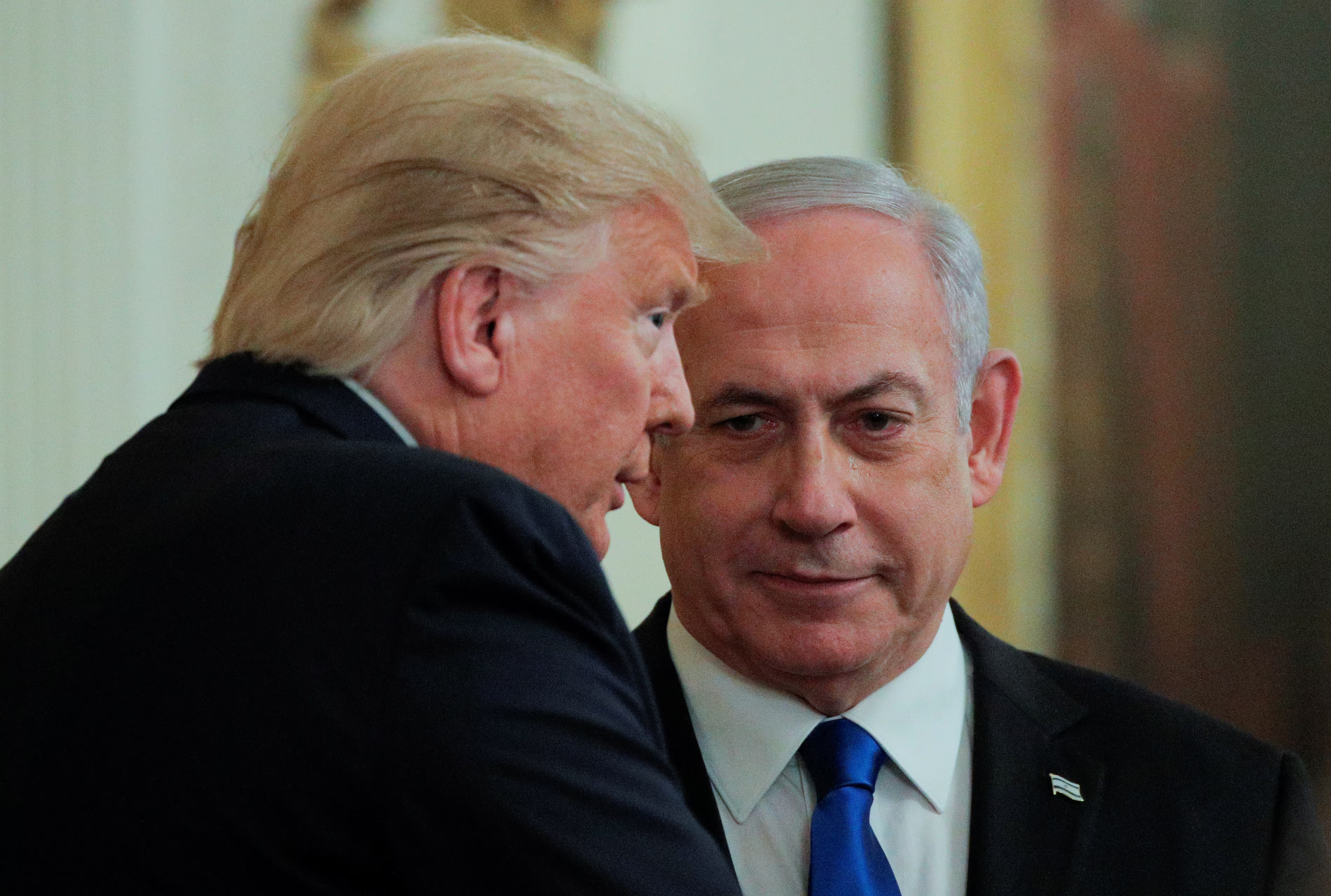
Since the onset of the war in Gaza, the US has not only ignored the mounting humanitarian toll but made itself an active participant. It has supplied the bulk of the weapons deployed in the narrow strip, providing the bombs, missiles and munitions that have flattened neighbourhoods and forced over two million Palestinians into desperate conditions. According to UN and NASA data analysed by Agence France-Presse, the 141-square-mile strip of coastal land, wedged between Egypt and Israel, has become one of the deadliest killing zones in modern history — entire families wiped out, whole districts reduced to rubble.
Beyond the human catastrophe, Israel’s military offensive — enabled by Washington’s steady flow of arms — has laid bare the fragility of the global order, from relentless violations of international law to Netanyahu’s most recent threat to strike at enemies anywhere. For decades, international institutions presented themselves as guardians of norms born from the horrors of Auschwitz, Nuremberg and Hiroshima. But when tested against the realities of power, they fall flat. In Gaza, the UN and ICC are discovering that their authority, however grand in rhetoric, remains largely symbolic when the US decides otherwise.
Washington’s latest manoeuvre has further exposed the scale of this failure. Earlier this month, it announced that Palestinian Authority President Mahmoud Abbas would be barred from travelling to New York for the UN General Assembly, where several US allies were expected to recognise Palestine as a state. The decision extended to around 80 other Palestinian officials, who faced visa denials and revocations targeting both the Palestine Liberation Organization and the West Bank-based Authority.
Under the 1947 “headquarters agreement”, the US is obliged to allow foreign leaders and diplomats access to the UN in New York. But Washington insists it can deny entry on grounds of extremism, security or foreign policy. No such rationale can be substantiated against Abbas. Instead, the decision reveals a broader posture suggesting that the US will use technicalities to silence Palestinian voices on the world stage, even as it continues to open its doors to leaders accused of far graver crimes, including Benjamin Netanyahu, who has been indicted by the ICC.
According to experts, the double standard is glaring. In 2013, Sudan’s former president Omar al-Bashir was denied a visa due to International Criminal Court warrants for genocide and crimes against humanity. But Netanyahu, also wanted by the ICC, faces no such restrictions. Nor does Vladimir Putin, indicted over the abduction of Ukrainian children. The precedent has shifted. What once served as a moral line — however inconsistently applied — is now treated as irrelevant when the ally in question is Israel.
That shift has accelerated under successive administrations. The Trump White House intensified the campaign against the ICC to the point of open hostility. In August, nine months after arrest warrants were issued for Netanyahu, Washington sanctioned four ICC officials — two judges and two prosecutors — accusing them of pursuing cases against Americans and Israelis. Assets held in US jurisdictions were frozen, a measure more commonly associated with organised crime or rogue regimes than international jurists. The court called it a “flagrant attack on the independence of an impartial judicial institution.” Yet, as Kenneth Roth, former executive director of Human Rights Watch, notes in his latest Foreign Policy piece, the ICC remains crippled without a prosecutor — adrift and vulnerable at a critical moment.
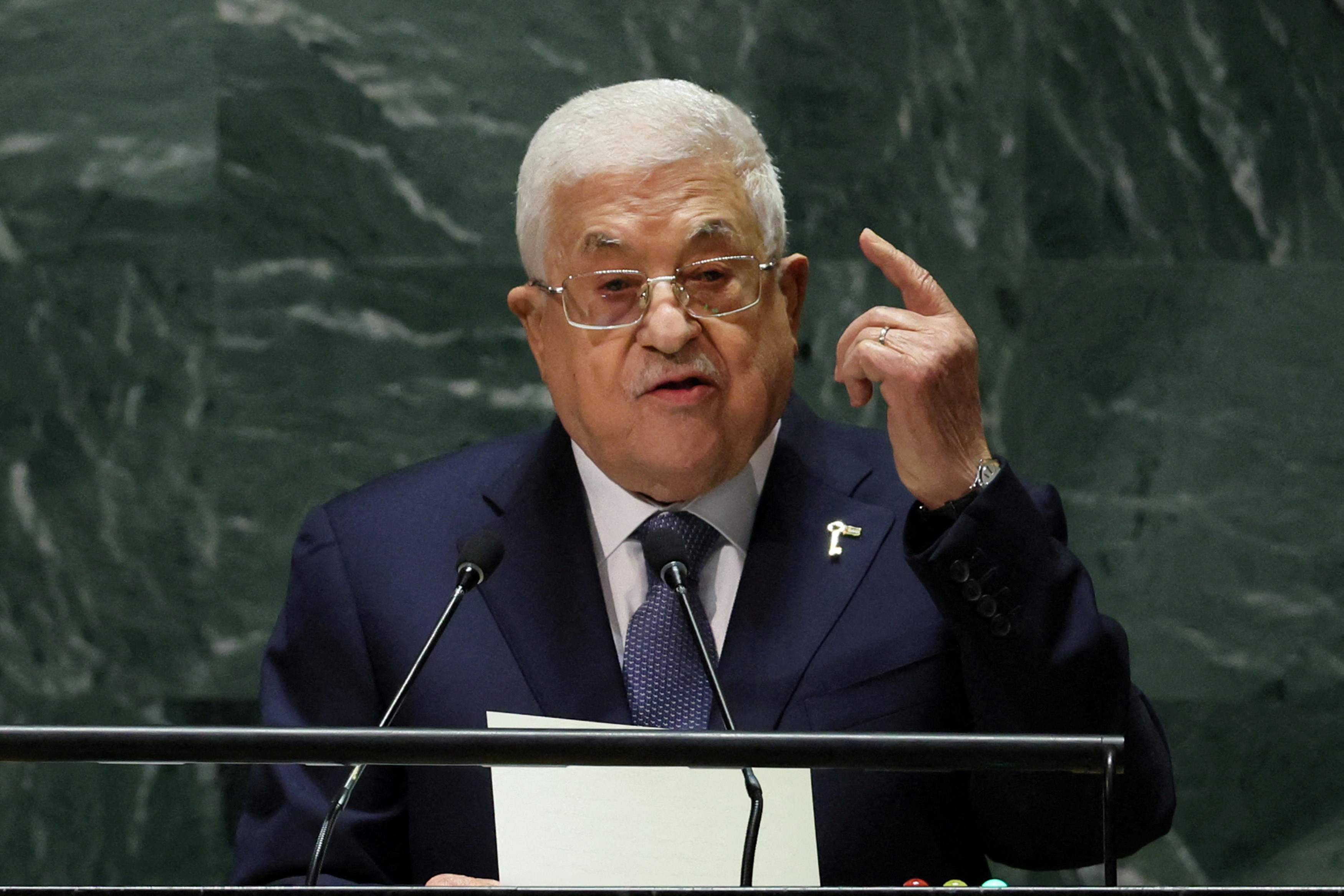
One rule for Israel, one for the world
Experts argue that Netanyahu should face arrest in any state party to the Rome Statute, the treaty that created the ICC. The chorus has grown louder since his strike on Qatar — a first in the oil-rich Gulf, jolting a region long insulated from direct conflict.
Instead, countries such as Italy, France and Greece have been accused of undermining the international legal order by allowing him to pass through their airspace unrestricted. Francesca Albanese, the UN special rapporteur on human rights in the occupied Palestinian territories, has warned that these governments have breached their obligations. For her insistence on upholding international law, she too has come under pressure, targeted not only by Israel but by Washington, which has sanctioned her and lobbied for her removal.
This strategy of obstruction goes further than anything experts have previously documented. Since the Gaza war began, the US has wielded its veto at the UN Security Council again and again — blocking resolutions demanding ceasefires, humanitarian pauses, even safe passage for aid. A Brazilian draft was struck down early in the war. In February 2024, when 13 members backed an Algerian text demanding an immediate ceasefire, the US killed it with Britain abstaining.
By June 2025, the pattern was unmistakable. Even when it has avoided the veto, Washington has diluted measures to make them toothless. In December 2023, it abstained on Resolution 2720, which called for humanitarian relief, but stripped the text of any language compelling Israel to allow aid in. The following week, the General Assembly voted overwhelmingly for a ceasefire, with 153 states in favour and only the US and a handful of allies opposed. The pattern is unmistakable – America does not simply disagree with calls for restraint, it moves systematically to block them.
In July this year, the State Department sanctioned three Palestinian rights groups — Al Haq, Al Mezan and the Palestinian Centre for Human Rights — all of which had petitioned the ICC to investigate alleged Israeli war crimes. For Washington, even legal activism by civil society organisations appears intolerable if it threatens Israel. The sanctions cut off funding and froze assets, crippling groups that had long documented abuses on the ground.
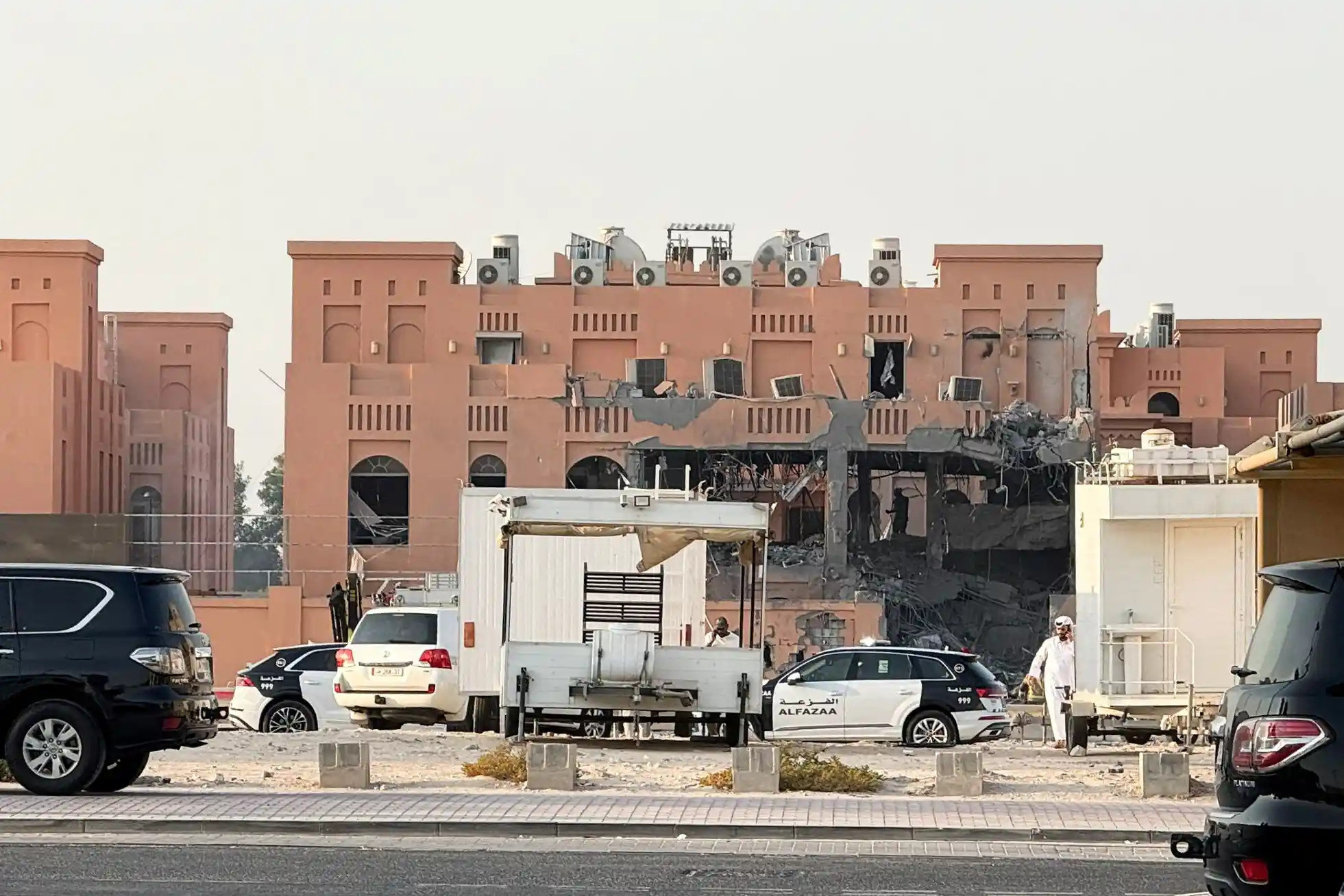
Roth argues that Washington’s hostility towards the ICC is hardly surprising, given it never supported the court in the first place, noting that America opposed the court’s creation because it could not secure an exemption for Americans. “At the Rome conference in 1998, the proposal failed, and the statute establishing the ICC was adopted by 120 votes to 7. From that moment, Washington treated the court less as a pillar of justice than as a potential threat to its power.”
Since then, policy has veered between hostility and grudging cooperation. The George W. Bush administration, though deeply opposed, abstained on a Security Council referral of Darfur to the ICC. Barack Obama went further, voting in favour of a referral on Libya. These were exceptions, not trends. The pattern of inconsistency hardened once the court began examining Israeli actions in Gaza and the West Bank.
Describing Washington’s approach as “a story of inconsistency,” Roth said: “When Vladimir Putin was indicted, then US president Joe Biden called the decision ‘justified’. But when prosecutors turned their attention to Netanyahu, he dismissed the charges as ‘outrageous’.” Trump went further still, sanctioning the court’s judges and prosecutors — a move without precedent in international law.
That inconsistency, Roth warned, is corrosive. Institutions built to uphold international law cannot command authority if the most powerful state in the system treats their rulings as optional. For Palestinians, the message is bleak — even when war crimes are credibly alleged, there is no impartial venue for justice if Israel is involved. For others — from Myanmar to Syria, from Sudan to Ukraine — the precedent is equally ominous. The lesson, experts argue, is that accountability is negotiable, contingent on who your allies are.
Swain takes this further, warning that international law is only as effective as the political will behind it, and in Israel’s case that will collapses at the level of enforcement — UN resolutions stall, ICJ/ICC moves are undermined, and “red lines” dissolve into press releases. Western governments, he pointed out, invoke legal language while shielding Israel from consequences, turning law into moral theatre.
“Power, not law, decides. This selective legality erodes the credibility of liberal democracies and accelerates a global drift toward naked transactionalism,” cautioned Swain.
The cost, according to the Sweden-based academic, is enormous — civilian protection is degraded, as the UN Independent Commission finds a genocide is committed, humanitarian access is politicised, and the precedent is set that court rulings and fact-finding can be ignored if one has the right patrons.
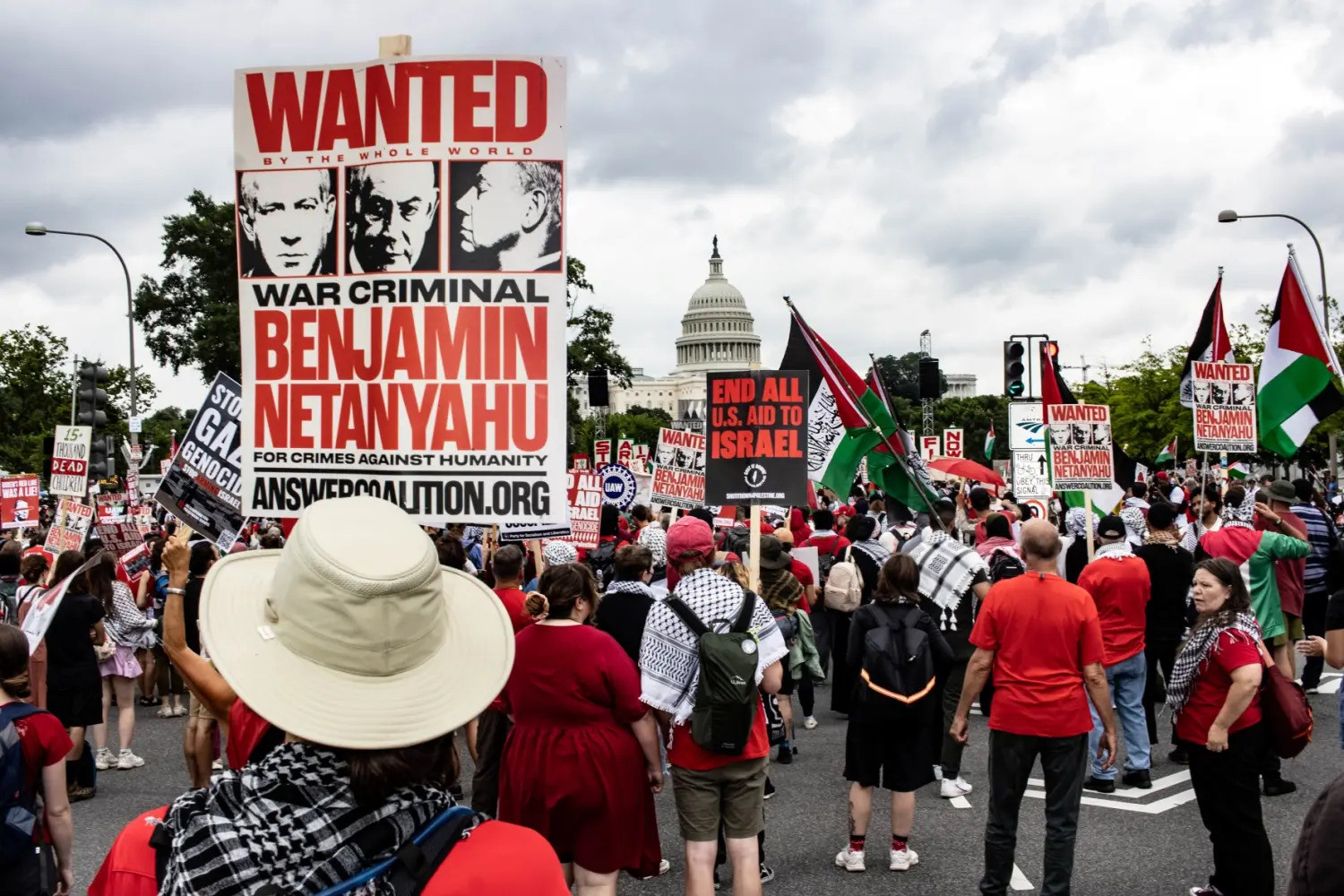
Rhetoric vs action
In July, despite all the rhetoric that mostly favours Israel, Trump acknowledged publicly for the first time that there is “real starvation” in Gaza, contradicting Netanyahu’s denials. He promised to allow “every ounce of food” into the enclave and admitted Israel bore “a lot of responsibility” for the crisis. So far, this remains the clearest statement from Washington. But the admission was never matched by a shift in American actions. The weapons continued to flow, the vetoes continued to fall, and the institutions were forcefully bent or ignored.
Images of skeletal children have travelled across the world, forcing the UN and aid agencies to warn that dozens of Palestinians have already died of hunger. International humanitarian law explicitly states that starvation as a weapon of war is prohibited. Responding to a question about the situation, Roth put it bluntly: “There is nothing Israel can cite to justify war crimes.
Nothing can excuse the deliberate bombing or starvation of Palestinian civilians in Gaza.” He reminded that international humanitarian law was drafted not by rights groups but by the governments with the world’s most powerful militaries.
When asked about who might be responsible for Gaza’s suffering, Swain was equally unsparing, arguing that responsibility is shared but layered. “Israel bears primary blame for its conduct in Gaza and its regional strikes — the United States and key European partners are culpable for enabling impunity, and Arab leaderships bear moral failure for substituting managed outrage for leverage.”
Each tier, he explained, sustains the next — munitions and diplomatic cover from the West, rhetorical posturing from regional capitals, and maximalist policy from Tel Aviv.
“What can stop it is not another statement but costs — conditioned arms transfers, automatic sanctions for violations, and credible multilateral recognition of Palestinian rights enforced in practice. Without material consequences, violations will continue,” warned the Sweden-based academic.
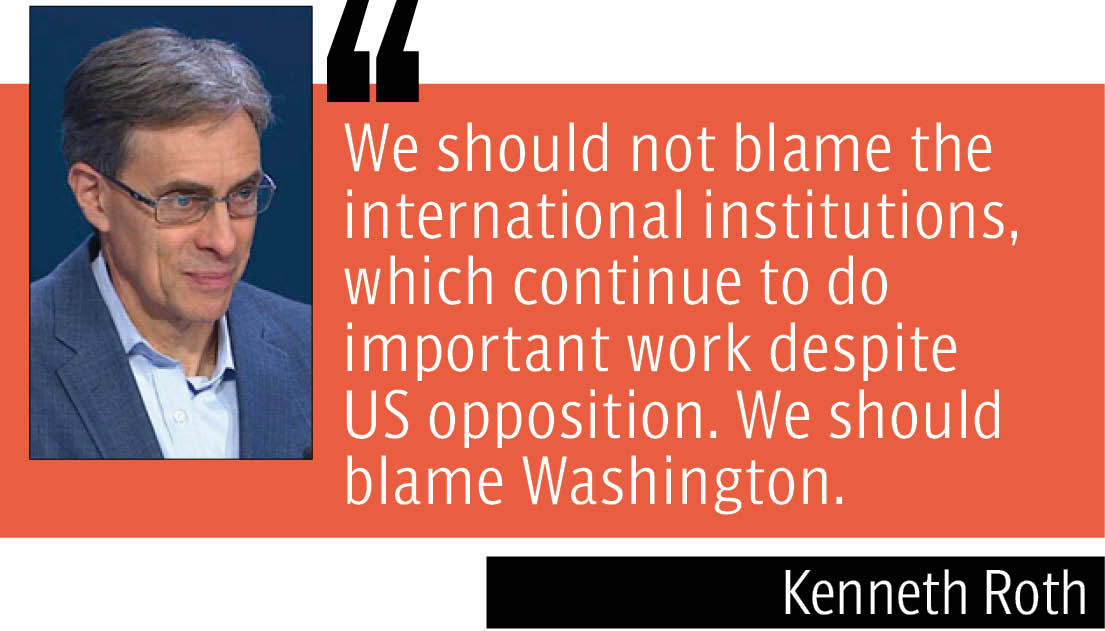
ICC under attack
Over the past few months, more specifically since it issued an arrest warrant for Netanyahu, the ICC has borne the sharpest brunt of American hostility. Established in 2002 to prosecute individuals for war crimes, crimes against humanity and genocide, it was created as the cornerstone of a new order of accountability. But from the start, Washington viewed it with suspicion. Successive administrations have sought to contain, obstruct or ignore it, depending on the target of its investigations. Under Trump, disdain sharpened into outright assault, with open calls for dismantling the court and threats from Republican senators such as Lindsey Graham against allies who might dare to arrest Netanyahu.
For observers, this is not an anomaly but a consistent trajectory. From the beginning, the US and Israel shared a rejection of universal jurisdiction. Both feared their military operations could be subject to scrutiny. Both lobbied to weaken the court at its inception. And both have since treated its rulings as optional.
Roth situated the problem not in the institutions themselves but in the way Washington uses its power. “Fortunately, in today’s world, no single government can undermine the rules-based order,” he said. He pointed to the coalition of 60 governments that pushed the ICC into existence in 1998, despite opposition from Washington, Moscow, Beijing, Delhi and Islamabad. The former executive director of HRW noted that pro-rights members of the Human Rights Council continue to carry out vital work even when the US opts out. “Do not blame the institutions — they continue vital work despite American obstruction. Blame Washington.”
By undermining the ICC and shielding Israel, Washington signals to other states that law is a matter of convenience, not obligation. If powerful countries can ignore rulings without consequence, the credibility of the system erodes for everyone. The precedent set in Gaza will not stay in Gaza. It will echo in Kyiv, in Khartoum, in Caracas — wherever leaders calculate the risks of repression against the prospect of justice.
“While other nations undoubtedly will be tempted to follow in Trump’s lawless footsteps, an international order that protects basic rights can survive if enough governments join together to defend our rights,” cautioned Roth.
The US presents itself as the defender of a “rules-based international order,” but Gaza, experts believe, has revealed the limits of that claim. The rules, they say, are enforced selectively. The order bends under pressure. And for the victims trapped in the rubble of Rafah, Khan Younis and Gaza City, the slogans offer no protection.
The strike on Doha and peace
September opened with Israel striking Qatar’s capital, Doha — in missile attacks it claimed were aimed at senior Hamas leaders, including negotiators engaged in talks over a Gaza ceasefire.
Swain describes the strike as a roadblock to near-term peace. “By striking at the very political channels essential for a ceasefire, hostage exchange, and humanitarian relief, Israel has made the prospect of peace even more remote.”
“It sidelines moderates and empowers maximalists on all sides, entrenching a war logic already responsible for catastrophic loss of life,” he cautioned.
“Without external enforcement, conditionality on arms, protection of aid corridors, and a binding pathway to Palestinian self-determination, this war will not end but merely mutate. Peace requires incentives and penalties rooted in law — yet at present, the incentives overwhelmingly reward escalation,” he added.
No limits for Netanyahu
When it comes to limits, there now appear to be none for the Israeli leader — defiance of international obligations has become the new norm. After the attack on Doha, Netanyahu even declared he was prepared to strike adversaries “anywhere, at any time,” shredding the slightest illusion that international law still exists to restrain such temptations.
Swain interprets the strike on Qatar as strategic signalling cloaked in the language of counter-terrorism — an attempt to decapitate Hamas’s political wing, intimidate mediators, and prove that Israel will hit wherever it chooses, even in a US-aligned Gulf capital.
“It expands the theatre of conflict from Gaza to the very diplomatic safe rooms designed to end the war, sending host governments the warning that harbouring Palestinian negotiators carries risk.”
This, he argues, is muscle-flexing meant to pre-empt compromise and reframe negotiation as surrender. The immediate “gain” is spectacle, deterrence, and Netanyahu’s grip on power — the long-term cost is the collapse of any credible venue for talks.
On the other hand, Swain believes that Netanyahu’s “anywhere, anytime” doctrine should worry not only Iran, Hezbollah or Palestinian hosts, but also Qatar and Egypt as mediators, Jordan and Lebanon as fragile neighbours, Europe as both supplier and potential target of spillover, and the United States, whose credibility is on the line as Israel’s chief patron.
“If unrestrained, this can spiral into repeated extraterritorial strikes, covert operations and tit-for-tat cycles that drag in great powers by alliance commitments and domestic politics,” the Sweden-based academic said. The ceiling, he added, was not Israel’s capacity but the absence of imposed limits.
“Only the reimposition of limits — legal, diplomatic, material — can halt the descent. Without them, this war will not end. It will metastasize.”
